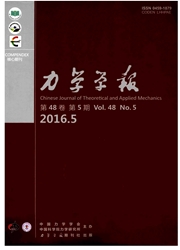

 中文摘要:
中文摘要:
目前混凝土桥梁结构D区多依据应力迹线的走向以及应力积分来确定拉压杆模型的基本构形,模型中杆件的布置存在一定的困难和随意性.针对此问题,以后张薄板锚固区为研究对象,提出一种多尺度分区渐进结构优化算法.首先,通过一种新的多节点微桁架元构建相应的等效基结构.然后利用此算法对不同偏心锚固力作用下的等效基结构进行分析,以自动生成锚固区拉压杆模型.最后,将该拉压杆模型与美国AASHTO桥梁设计规范中推荐的模型进行了对比.研究结果表明:该算法能够定量化确认拉压杆模型中杆件的位置,特别是拉杆位置与数值分析得到的受拉区合力作用线能较好吻合.
 英文摘要:
英文摘要:
At present the strut and tie models of D-regions in concrete girder bridges are often obtained qualitatively according to stress trace and integration,by which the location of members is random to some extent.To solve this problem,a multi-scale evolutionary optimization algorithm is proposed,taking post-tensioned anchorage zone as research objects.First,the equivalent ground structure is built by a multi-node pattern of micro-truss element.Then the algorithm is used to analyze the ground structure subjected to different eccentric loads in order to generate the strut and tie model of anchorage zone.Finally,the models are compared with those in AASHTO bridge design specifications.The research shows that the algorithm can identify definitely the position of struts and ties of models,and the distribution of ties are found to be in good agreement with finite element analysis.
 同期刊论文项目
同期刊论文项目
 同项目期刊论文
同项目期刊论文
 期刊信息
期刊信息
